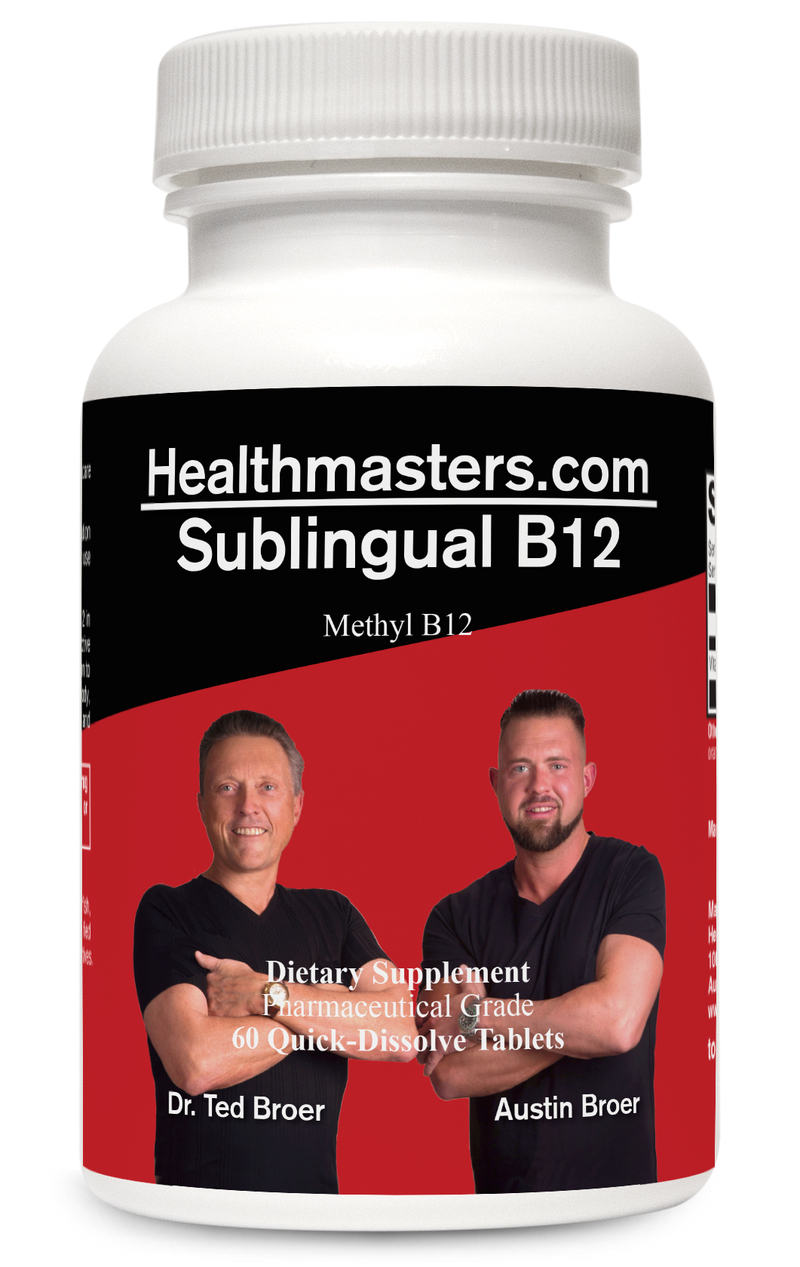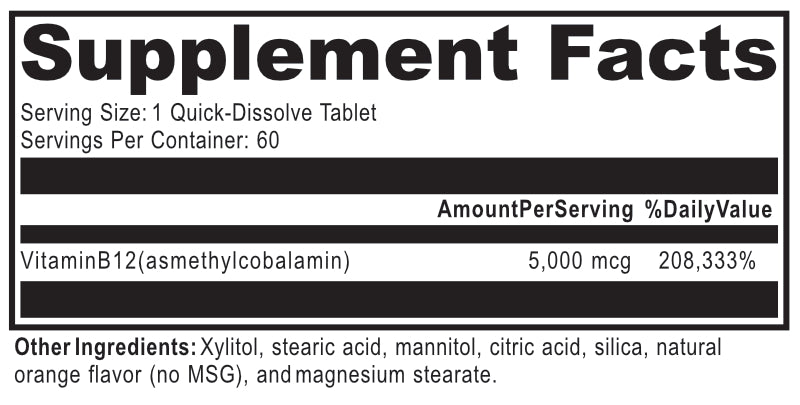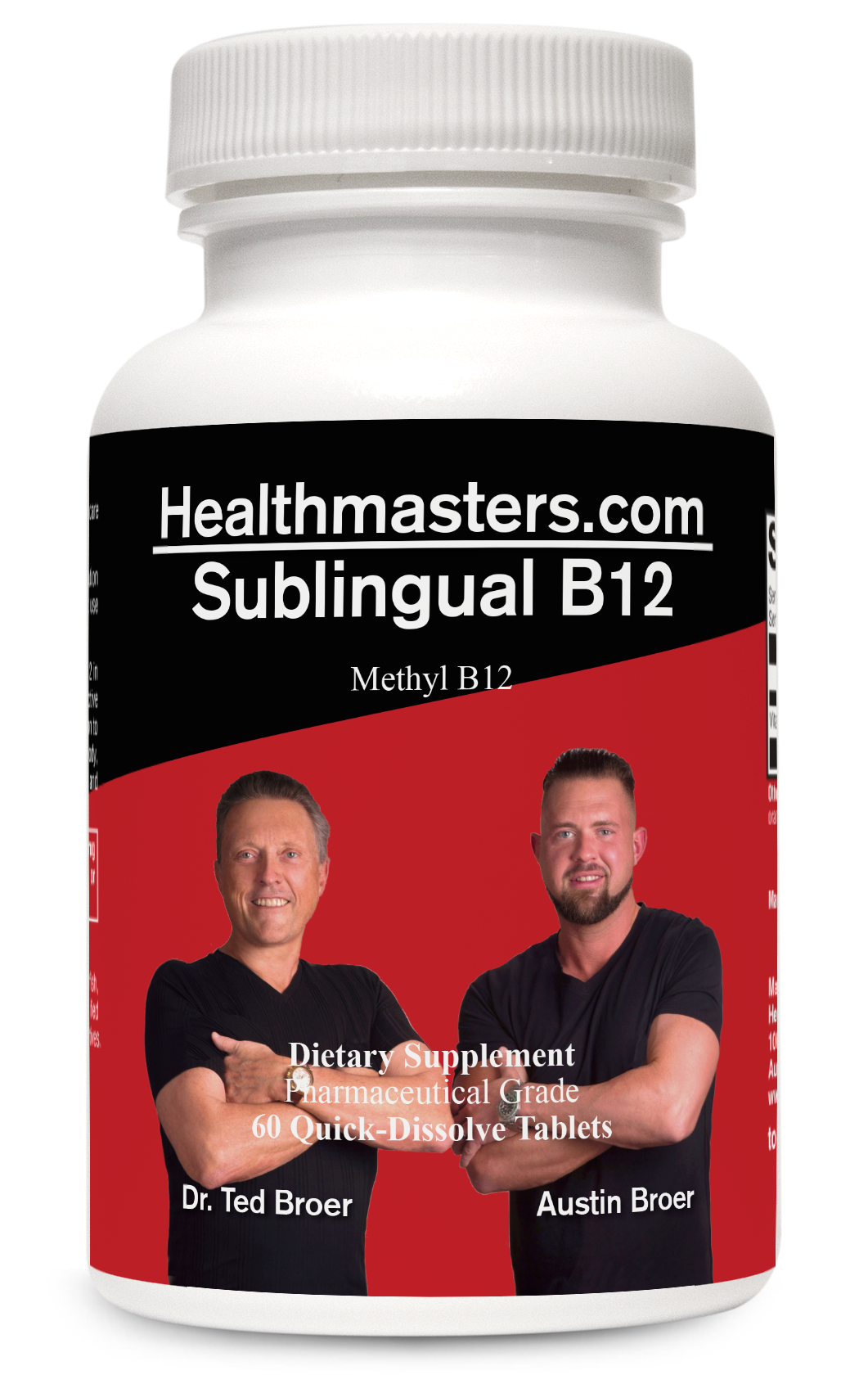B12 Sublingual — Rapid-Absorption Methylcobalamin for Energy, Mood & Cognitive Support
B12 Sublingual delivers MecobalActive™ methylcobalamin — the purest, most bioactive form of B12 — to optimize energy, mental clarity, mood stability, and nervous system function. Unlike common forms of B12 that require conversion, methylcobalamin is ready-to-use by your body, ensuring maximum effectiveness from every dose.
This highly absorbable sublingual formula allows B12 to enter your bloodstream directly under the tongue for fast results. B12 supports red blood cell formation for enhanced oxygen delivery, fuels neurotransmitter synthesis for improved mood and cognitive clarity, and promotes healthy sleep-wake cycles by regulating circadian rhythms.
By reducing homocysteine levels, B12 also supports cardiovascular and brain health, making it an essential nutrient for daily vitality, focus, and emotional balance.
Key Benefits:
-
Supports sustained energy and combats fatigue
-
Enhances cognitive clarity, memory, and focus
-
Promotes mood balance and neurotransmitter function
-
Supports red blood cell formation for oxygen delivery
-
Aids circadian rhythm for better sleep quality
-
Delivers MecobalActive™ methylcobalamin — pure, bioactive B12
-
Sublingual delivery for rapid, direct absorption
Whether you're feeling sluggish, foggy, or low in energy, B12 Sublingual provides rapid support to help you feel vibrant, focused, and energized every day.



